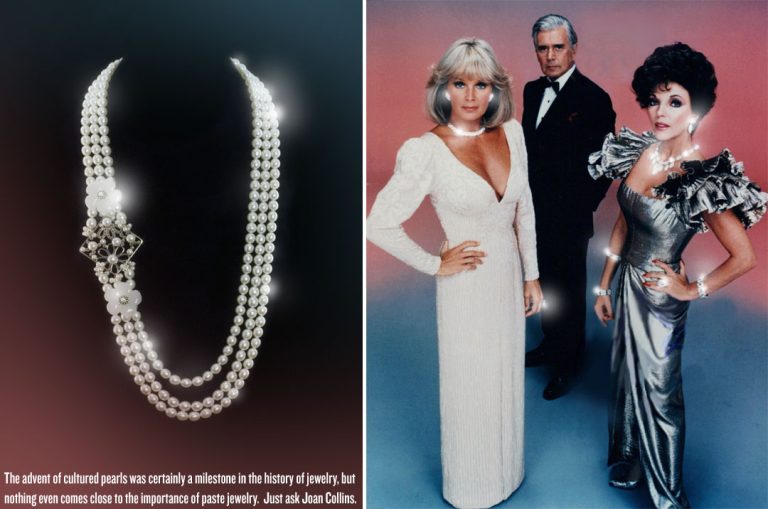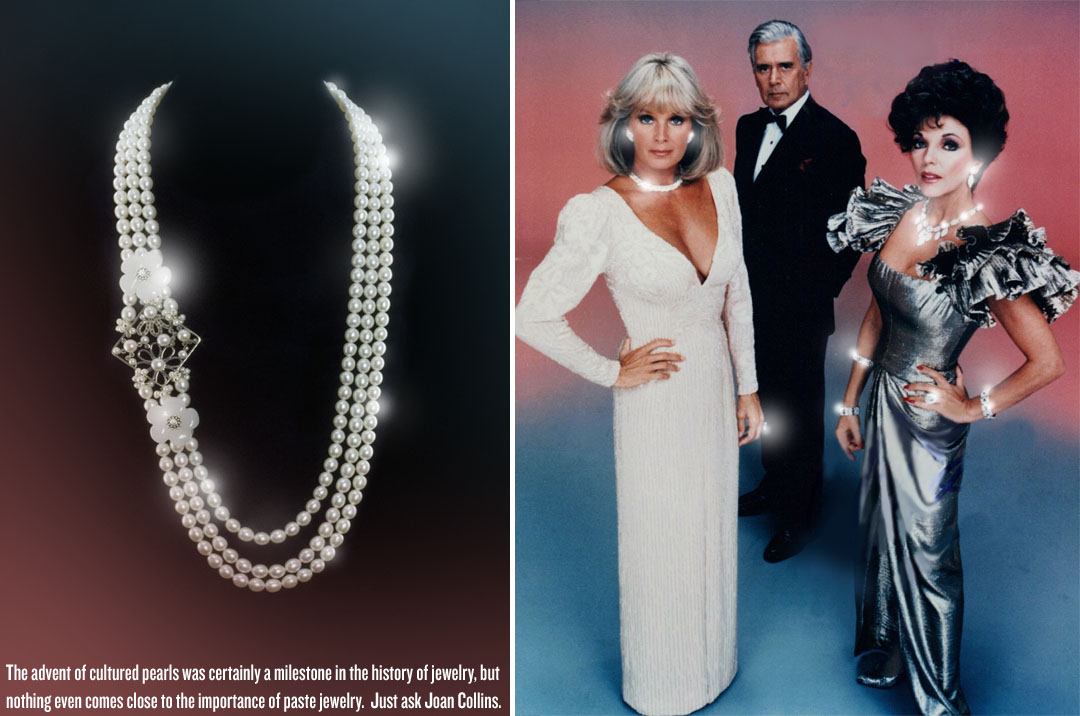In a brand new feature story Deputy Editor Isabel Lloyd of The Economist’s lifestyle and culture magazine INTELLIGENT LIFE, takes a fascinating look at the pivotal breakthroughs that changed the course of jewelry design. Lloyd opens with: “In many ways, jewelry is the most limited of arts. Precious stones and metals are unreliable, recalcitrant base materials with only a few, often nannyish ways of getting them to do the thing you want. The objects you make mustn’t be too heavy, unwieldy or scratchy, but they have to be sturdy: as in engineering, all the bits have to stick together. So when the engineers, as they occasionally do, come up with a new way of building, cue much excitement. Designs change, fashions change, even entire markets change.” It’s a terrific read where Lloyd explains the significance behind the following 7 breakthroughs: laser welding, lost-wax casting, the ideal cut, enamel, cultured pearls, granulation, and Lloyd’s personal favorite — paste jewelry.
Why does paste stand out above all the rest for Lloyd? Because from a very early period the imitation of gems was attempted, but no civilization had ever truly pulled it off. This impossible achievement was finally accomplished in 1758 by the Viennese goldsmith Joseph Strasser who succeeded in inventing a colourless glass paste that could be cut and that superficially approached the sparkle of genuine diamond; the products of this paste are called strass stones. As Lloyd points out, the advent of paste jewelry marked “the beginning of the democratising of jewellery.” You can read the entire feature by visiting MoreIntelligentLife.com. And for a more detailed technical explanation of why paste jewelry is so significant be sure to visit Britannica.com.
From a personal standpoint I would have to agree with Lloyd about the importance of paste. If it hadn’t been for this democratization of gemstones millions of gay teenage boys around the world — yours truly included — would have missed out on the jewel-filled antics of Joan Collins and Linda Evans in the amazingness that was DYNASTY. The glitz and sparkle of that 1980s spectacle of fake jewelry, fake drama, and fake boobs kicked off my obsessive love affair with fake shiny rocks that continues to this day. Every time I hear that theme song I feel the urge to wrap myself in cheap white satin, pop on a couple fake crystals earrings off of my $5 flea market lamp, and walk down my staircase with a dumbfounded look of fake surprise on my face. Long live the Carringtons!
SEE ALSO: INTELLIGENT LIFE Traces The Rise And History Of The Word “Dude”
SEE ALSO: INTELLIGENT LIFE Explores The Cult Of Black Throughout History And Why This (Absence Of) Color Is So Addictive



